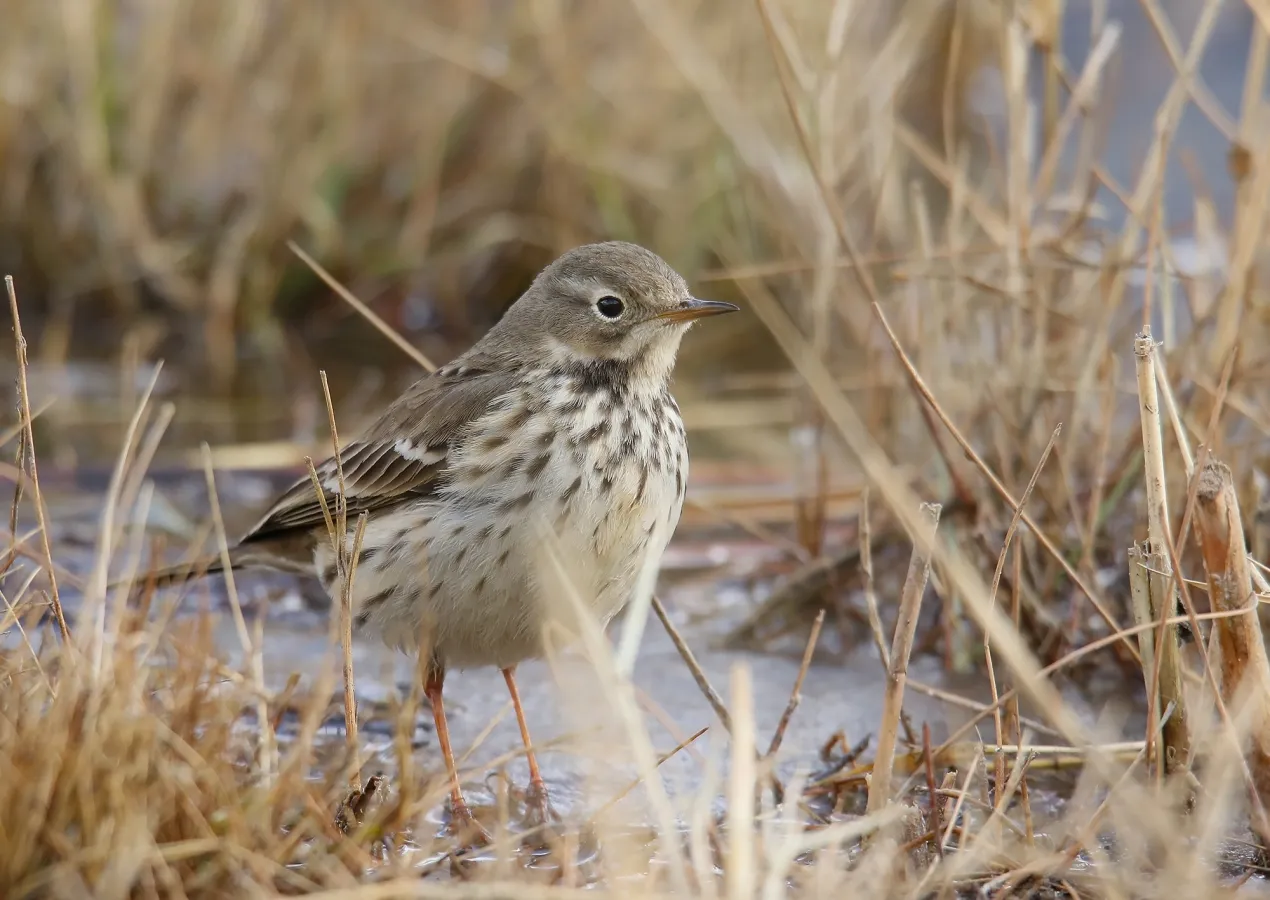
American Pipit
American Pipit
95
18 hours ago
Not yet spotted on Fladder
Spotted
The American Pipit is a widespread, slender passerine of open country, recognizable by its constant tail-wagging motion and distinctive call. It has a relatively plain plumage with subtle streaking and often a buff wash on its underparts.
Where to spot
Breeds in Arctic tundra and alpine regions across northern North America and eastern Siberia. Winters widely across the southern United States, Mexico, Central America, and the Caribbean, as well as parts of East Asia, favoring open fields, shorelines, and grasslands.
How to spot
Look for its slim build, constantly wagging tail, and upright posture. Often seen foraging on the ground in open fields, shorelines, or tundra. Listen for its high-pitched, often double, 'pip-pip' or 'tsee-tsee' call.
When to spot
Most easily observed during spring and autumn migration when they pass through various open habitats, or in winter in their non-breeding grounds. They are in their breeding areas during summer.
Where to spot
Breeds in Arctic tundra and alpine regions across northern North America and eastern Siberia. Winters widely across the southern United States, Mexico, Central America, and the Caribbean, as well as parts of East Asia, favoring open fields, shorelines, and grasslands.
How to spot
Look for its slim build, constantly wagging tail, and upright posture. Often seen foraging on the ground in open fields, shorelines, or tundra. Listen for its high-pitched, often double, 'pip-pip' or 'tsee-tsee' call.
When to spot
Most easily observed during spring and autumn migration when they pass through various open habitats, or in winter in their non-breeding grounds. They are in their breeding areas during summer.
The American Pipit is one of the few passerines that breeds in extreme Arctic tundra and alpine environments across vast areas of North America and Eastern Siberia, demonstrating remarkable cold tolerance.
Loading...
Spotted
- Recently spotted
- 13499 (Seen in the last 3 months)
- Last spotted
- 18 hours ago
Monthly observations
No observations
Loading...
Nothing spotted yet











